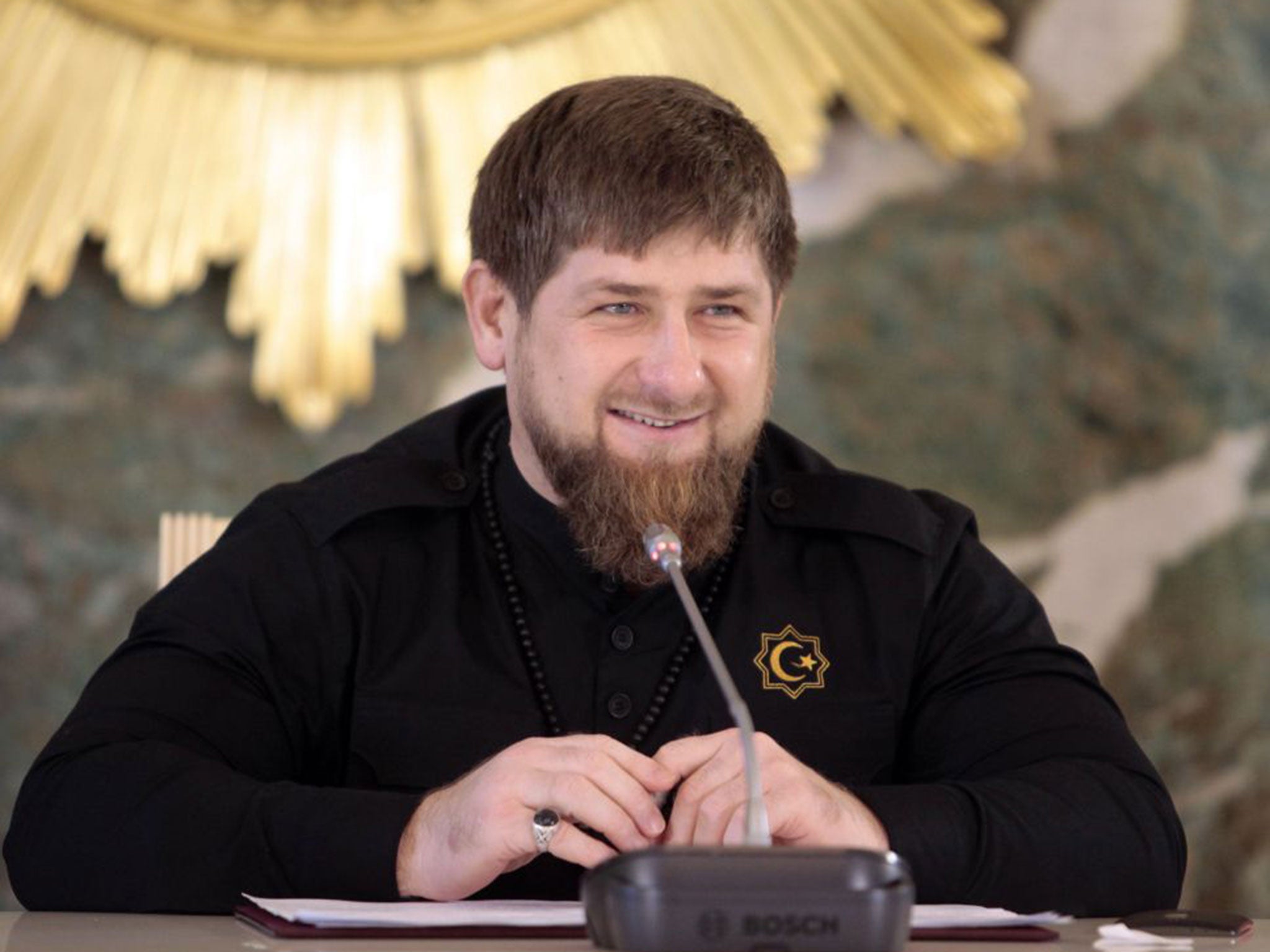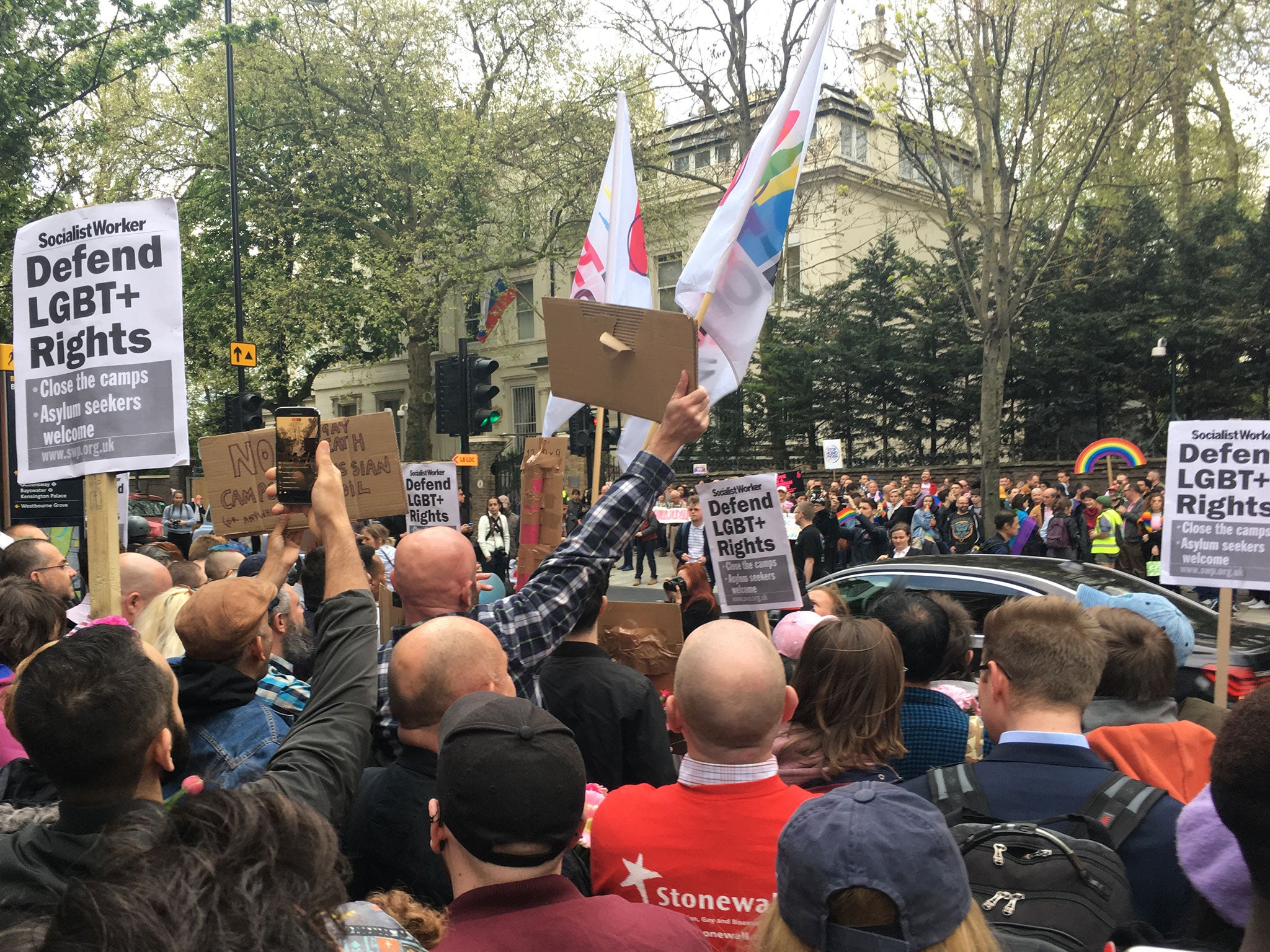Russian reporter who exposed Chechen 'detention and torture of gay men' goes into hiding as allegations widen
Novaya Gazeta says at least six prisons used in brutal campaign as reporters receive threats

Your support helps us to tell the story
From reproductive rights to climate change to Big Tech, The Independent is on the ground when the story is developing. Whether it's investigating the financials of Elon Musk's pro-Trump PAC or producing our latest documentary, 'The A Word', which shines a light on the American women fighting for reproductive rights, we know how important it is to parse out the facts from the messaging.
At such a critical moment in US history, we need reporters on the ground. Your donation allows us to keep sending journalists to speak to both sides of the story.
The Independent is trusted by Americans across the entire political spectrum. And unlike many other quality news outlets, we choose not to lock Americans out of our reporting and analysis with paywalls. We believe quality journalism should be available to everyone, paid for by those who can afford it.
Your support makes all the difference.One of the Russian reporters who exposed the detention and torture of gay men in Chechnya has gone into hiding amid fears of retribution as the scope of alleged abuse widens.
Both the Kremlin and Chechen government have dismissed “provocative” reports by Novaya Gazeta, which said at least 100 men had been rounded up and jailed at secret prisons on suspicion of being gay.
At least three have been killed, the newspaper said, while other detailed horrific torture and beatings before being released with the threat of relatives carrying out “honour killings”.
Elena Milashina has left her apartment in Moscow and plans to flee Russia after Muslim clerics in Chechnya “announced jihad against all the staff of Novaya Gazeta” over the report, which sparked a global outcry.
She told CNN its offices had received two envelopes filled with white powder following the sermon in Grozny, which was watched by 15,000 people and broadcast on regional television.
“We still don't know what the powder is – we have asked the security forces to check it,” Ms Milashina added. “But all of us, including me, consider this situation is very serious.”
The meeting saw clerics adopt a resolution calling for the “instigators” of the reports to be held to account – a statement condemned as an “incitement to massacre journalists.”
The Committee to Protect Journalists said the rally was attended by an adviser to the Chechen President, Adam Shahidov, who called reporters “enemies of our faith and our motherland” and promised “vengeance”.
Nina Ognianova, the group’s Europe and Central Asia coordinator, called for Russian authorities to ensure the safety of reporters.
“Novaya Gazeta reporters have taken enormous risks and have paid the highest price for uncovering human rights abuses and speaking truth to power,” she added.
“They should not fear for their safety because they are doing their job.”
The newspaper’s latest report claims that at least six detention centres are being used to house men abducted on suspicion of being gay, with two identified so far in Argun and Zozin-Jurt.
The European Union’s foreign policy chief, Federica Mogherini, told the Russian government it had a duty to protect the human rights of all of its citizens during her first visit to the country.

“Our expectation is that the Russian Federation does its part to protect its own citizens in full respect of human rights principles,” she told a news conference, adding that she had discussed the issue during a meeting with the Russian foreign minister, Sergei Lavrov.
He claimed that officials have not yet seen any information confirming the reports but added that Moscow is concerned about “any human rights violations”.
Vladimir Putin met with Chechen leader Ramzan Kadyrov last week in a public show of support for his ally, who has been in power in the Russian republic for a decade.
The Russian President’s spokesman said the Kremlin has no reason to disbelieve Mr Kadyrov’s denials because no one has publicly come out as a victim.
“We have no reason not to trust the head of the republic until there are actual complaints in this regard, not abstract, anonymous but actual complaints,” Dmitry Peskov added.
Human rights activists said it was unlikely that a gay person would come out publicly in Chechnya because of fear of reprisals against themselves and their families.
A spokesman for Mr Kadyrov claimed there were no gay people in Chechnya while defending the government against the allegations.
“If there were such people in Chechnya, law-enforcement agencies wouldn’t need to have anything to do with them because their relatives would send them somewhere from which there is no returning,” Alvi Karimov said.
The Chechen interior ministry dismissed the allegations as an “April fools’ joke”, while the press minister demanded journalists name interviewed victims and apologise for their “filthy provocation”.
Mr Kadyrov later said he had met with the region’s human rights council on Sunday and proclaimed that rights have undergone a “grandiose” improvement.
He accused international organisations of conducting a “massive information attack... using the most unworthy methods, reality is distorted, attempts are being made to blacken our society, lifestyle, traditions and customs”.
The reports have been taken seriously by the UN High Commissioner for Human Rights and prominent international organisations, which have urged the Russian government to investigate as well as protect journalists.
The situation has been the subject of a parliamentary debate, as well as a speech by former Republican presidential candidate Marco Rubio in the US Senate.
“Unfortunately this is not a new reality for those living under the brutal tyranny of the Chechen leader, who, by the way, happens to be a loyal ally of Mr Putin,” he said.
“We should never, ever tolerate human rights violations against any person for their political views, their religious beliefs, or their sexual orientation.
“The United States and other responsible nations should do more to ensure that all people are protected, and those who harm them are held responsible."
Join our commenting forum
Join thought-provoking conversations, follow other Independent readers and see their replies
Comments